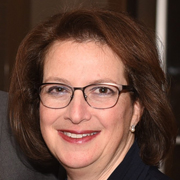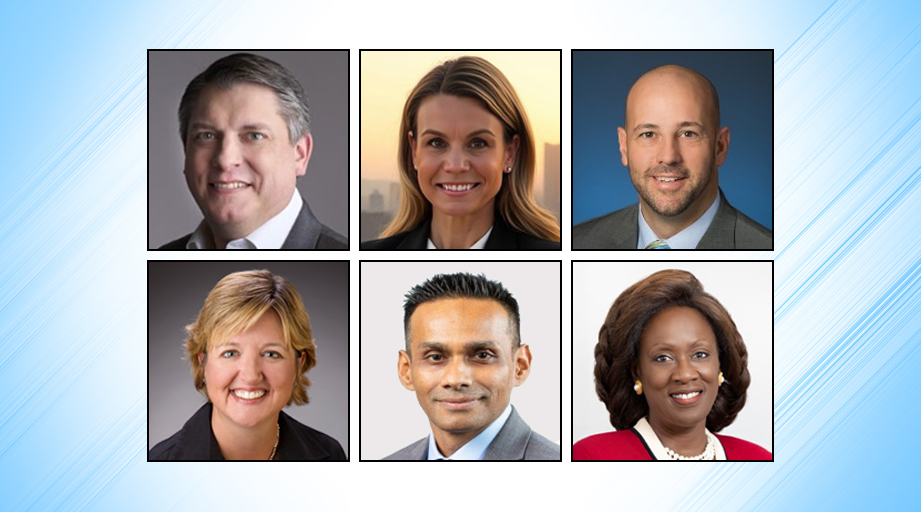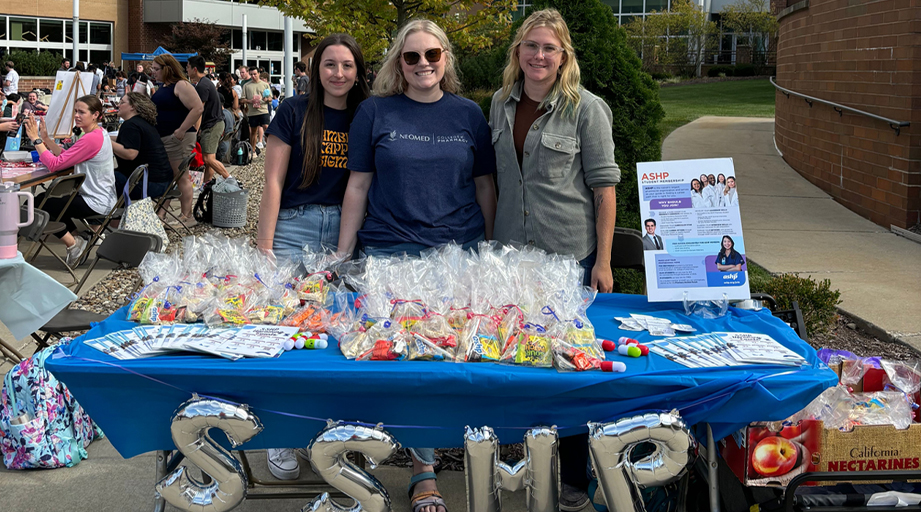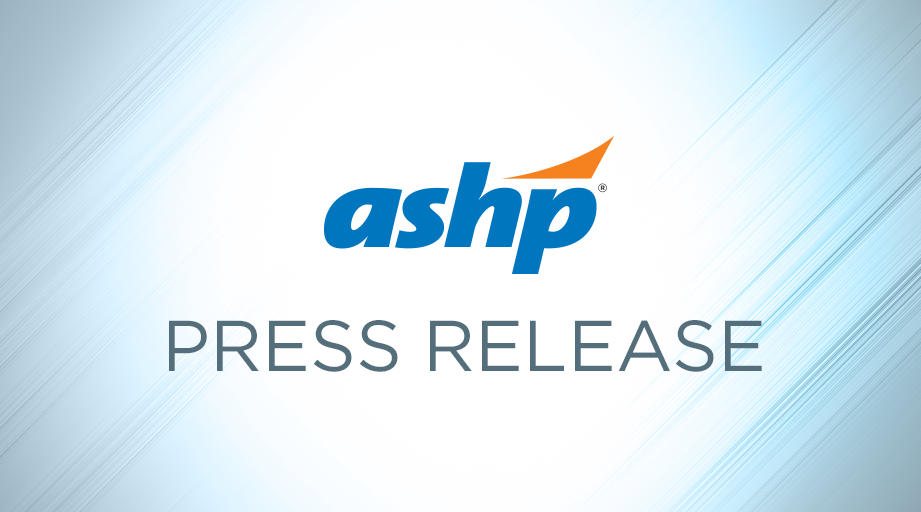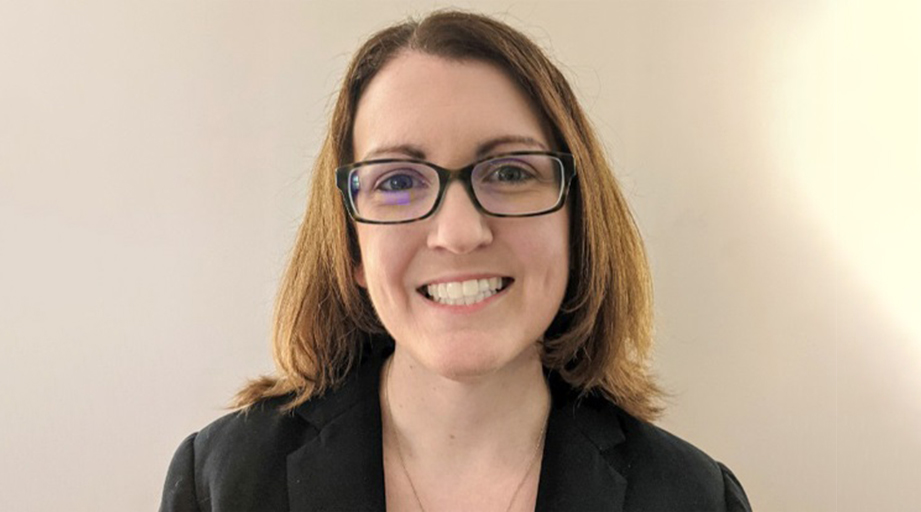
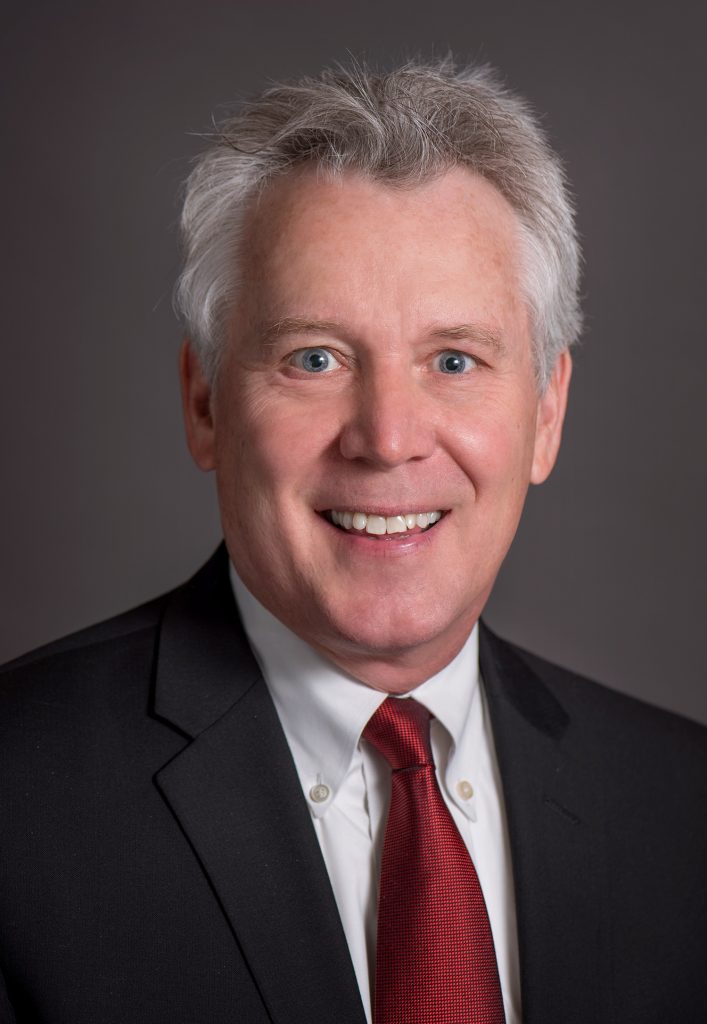
EARLY LAST YEAR, JEROME WOHLEB, PharmD, MBA, FASHP, pharmacy services director at Bryan Medical Center in Lincoln, Neb., faced a dilemma. A Nebraska Pharmacy Workforce Survey revealed a high level of burnout among pharmacists in the aftermath of the COVID-19 pandemic. An employee engagement program at his health system also identified high burnout among pharmacists and technicians. On top of that, he was experiencing burnout himself.
"I needed to do something as the director," said Dr. Wohleb, an ASHP member. "I thought if I just put out more effort and made a better college try, I would come up with the answer. Well, in reality, that just leads to more burnout."
Then, through his participation in the Nebraska affiliate of ASHP and as a state delegate to the organization, Dr. Wohleb heard about ASHP's new Well-Being Ambassador (WBA) Program and enrolled. The initiative is a curriculum-based, virtual learning program to counteract occupational burnout and help pharmacists create cultures of well-being in healthcare organizations. While emphasis has been placed on recruiting WBAs from tribal, rural, and underserved areas, the program is open to all members of the pharmacy workforce, regardless of ASHP member status.
Nearly 1,500 pharmacy workforce members joined the program’s first cohort, which launched last June. The agenda includes seven modules on topics such as caring for self and others and using a systems approach and human-centered processes to address risk factors for occupational burnout in healthcare settings. It's designed for participants to increase their skills in applying strategies to enhance well-being and resilience in both their personal lives and professional settings.
The program was funded through the U.S. Department of Health and Human Services Health Resources and Services Administration as part of its efforts to reduce burnout and promote mental health among healthcare workers. ASHP is the only pharmacy workforce-focused organization awarded funds to support this effort.
Dr. Wohleb said he realized the program's value during the initial session, which helped him understand why and how behavior was being impacted by burnout. "I'd been looking for an all-encompassing wellness resilience program for several months," he said, noting the program was convenient and he found ways to work it into his off hours. "As soon as I would complete a module, I could provide that information to my pharmacy team at staff meetings. It provided a lot of value right out of the gate."
One big takeaway for him was revising how he thought about burnout. Instead of thinking the problem was stemming from him, he learned to recognize how the work environment, including areas like computer systems and EHR documentation, was contributing. He shared burnout inventories presented during the course with his hospital leadership team. As a result, the health system held a full-day symposium for leaders on wellness and burnout. What's more, the chief medical officer at his hospital plans to use some of the course materials for the medical staff, and the state affiliate plans to tap into some of the lessons as part of their annual meeting, too.
Dr. Wohleb says he plans to continue sharing the lessons learned with others. As pharmacist numbers are declining, he said, "I want to make sure people don't start leaving the field and realize there are tools available for them to offset some of the challenges they're facing."
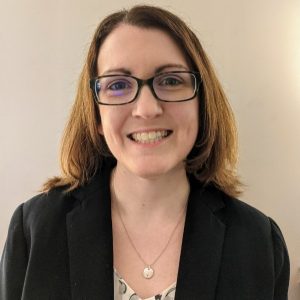
FASHP, FMSHP
ASHP member Nicole Clark, PharmD, MHA, BCPS, FASHP, FMSHP, director of pharmacy for Tufts Medicine MelroseWakefield Hospital, in Melrose, Mass., also was part of the program's first cohort. She directs a health system pharmacy administration and leadership residency program and enrolled along with one of her learners.
"I'm very much a lead-by-example kind of person," Dr. Clark said, noting she has had an interest in well-being and resilience since ASHP created its policy on the topic when she chaired the organization's Council on Education and Workforce Development. "I'm someone who likes having resources and learning. It's really helpful to go forward in the future as we're trying to support our staff and handle everything."
As the program evolved from modules on self-care to broader themes at a system level, Dr. Clark said she has tried to implement changes in both areas. Since completing the program, she has put a whiteboard in her office where every morning, she reflects on gratitude and writes inspirational quotes. She also has started journaling to stay positive.
One activity from the program that resonated with her was that staff members used sticky notes to write down all of the things that were great at their work and items that take away from productivity. She has done the activity with the residents and is rolling it out to the larger staff. "Sometimes it's not very big things that are bothering people. It is things that are often fixable," she said.
All PGY1 residents in their program take on a lead duty. This year a new lead duty for Well-being and resilience was created. This individual has been planning monthly activities and organized an art show around the winter holidays where their culturally diverse pharmacy staff either were invited to make and display their own creations or color a page from a coloring book to indicate what the season meant to them. "We were really surprised at some of the artistic ability in our department," Dr. Clark said. "A lot of people participated, and it ended up being fun."
She and her colleagues are continuing to look at additional ways to create a more positive culture, from a Valentine's Day-type event where people send each other positive notes to acknowledging staff birthdays and work anniversaries.
Drs. Wohleb and Clark say they highly recommend the program to others. In fact, three of Dr. Wohleb's four managers signed up for the second cohort of the program that started last November, with over 1,100 enrollees. "It's definitely one of those things where you're going to get more out of it the more you participate," Dr. Clark said. She said she has appreciated getting to know a new community of other ambassadors.
"A lot of people that have burnout, the last thing they want to do is one more work assignment or one more thing," Dr. Wohleb said. "But in essence, it's a way to turn around your mental attitude and your behavior, so that you have more energy to spend time with your family or doing other activities. You have to look beyond the time commitment and invest in your future."
If you are interested in joining the next cohort of the Well-Being Ambassador Program, the deadline to sign up is April 2, 2023.
HRSA DISCLAIMER
This project is supported by the Health Resources and Services Administration (HRSA) of the U.S. Department of Health and Human Services (HHS) as part of an award totaling $2,280,030. The contents are those of the author(s) and do not necessarily represent the official views of, nor an endorsement, by HRSA, HHS, or the U.S. Government.

